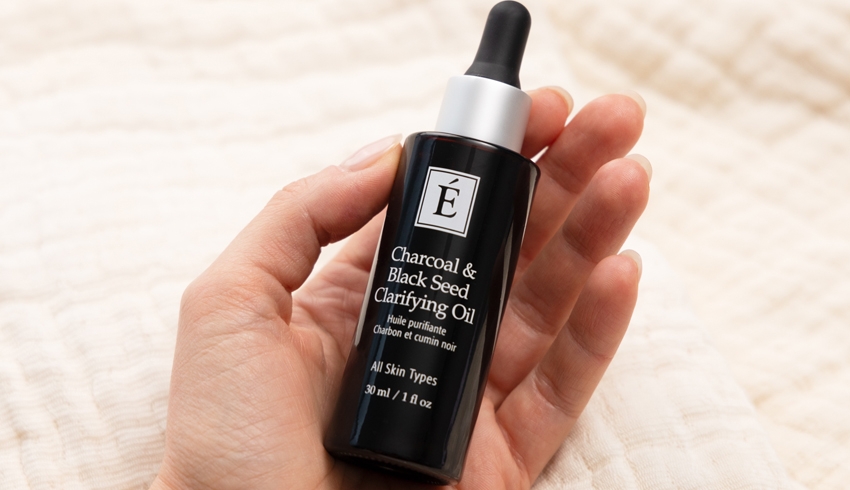Serums, concentrates and oils are high-value skin care products, so every drop counts! If you’ve ever wondered if you’re using too much product or applying too frequently, we have some simple tips so you don’t waste a single dollop of these luxurious facial oils or serums.
Why Serums, Concentrates Or Oils? | How To Layer | How Much To Apply | What If You Don’t Layer Them On Properly? | Layering Serums 101
Why Include Serums, Concentrates Or Oils In Your Skin Care Routine?
Before we dive into the best way to layer these products, why even use them in the first place? It can be confusing to decipher the difference between the three. Facial oils are designed to provide hydration and keep moisture in the skin and usually contain botanical and herbal ingredients to nourish the skin.
In comparison, serums contain a high concentration of active ingredients that target a multitude of skin issues at once (like wrinkles and fine lines) and have a gel-like texture. They also usually have a gel-like texture. Concentrates, on the other hand, focus their high potency of one active ingredient and usually have the consistency of a lightweight lotion. You can learn which oil, serum or concentrate to use for your skin type here, or read more about using the right amount of serum here.
How To Layer Serums, Oils & Concentrates
We recently looked at the best serum or oil for your skin type in this blog. All your skin care products should be used in a specific order to get the most out of each product. Ideally, you want to limit your selection to a maximum of two serums, oils and/or concentrates so they can effectively absorb into the skin.
We advise applying your skin care products beginning with the thinnest consistency and ending with the richest:
- Serums
- Concentrates
- Oils
After cleansing and toning, start with layering your facial serum, the thinnest consistency product, as it delivers active ingredients into the skin most efficiently. Concentrates are next, followed by facial oils. Facial oils come last as they’re designed to prevent water loss and “seal” the formulations in the skin.
As our Eminence Organics Product Support Team explains, “Applying a facial oil after your serums helps lock in moisture and the nutrient-rich ingredients you just applied to the skin while allowing for optimal product penetration.”
Watch this video to find out more from Lead Skin Care Trainer Natalie Pergar about how to layer your skin care products in the right order:
When & How Much Serum Should I Apply?
Apply a thin layer (three to four drops) of each product over the entire face. You can use a serum every day during your morning and nighttime routines. Gently press the product into your complexion and don’t forget your neck area. Be sure to allow time for each product to sink into the skin to maximize results. Follow up with your favorite Eminence Organics moisturizer to lock in the goodness.
How To Apply Face Oils
The main reason for applying skin care products in a specific order is absorption. Layering skin care products in the correct order determines how effectively the formulation can penetrate the skin. For example, the general rule is to avoid applying a moisturizer after a face oil as it is pore-clogging. Applying a thicker, richer formula first could result in poor product absorption for the products that follow. That being said, there is an exception — our own line of face oils. Eminence Organics’ facial oils have a unique formula that allow them to be applied flexibly in your routine so you can customize it!
Eminence Organics’ Face Oils Can Be Applied Flexibly
Eminence Organics face oils do not contain any mineral oils that tend to create a barrier on the skin. In addition, our moisturizers do not contain any ingredients (such as silicone) that could block the face oil from penetrating your skin. That means you can customize the order and decide whether you want to use your moisturizer or face oil first. You can also add a couple of drops of oil into your favorite Eminence Organics moisturizer.
Other Brands
If you’re using another brand, you should stick to the order of serums, concentrates and then oils, followed by a moisturizer. If you apply products in the incorrect order, applying serums on top of oils could leave your skin dry and dehydrated, as not enough water is reaching your skin, according to The Skincare Edit. Additionally, you could irritate your skin and create new skin issues. You may also experience pilling and the skin might feel sticky or tacky. But as our Product Support Team advises, waiting approximately one minute between the steps should help prevent pilling from happening.
If you’re wondering how to apply face oils, you can watch Natalie discuss this in the video below.
Layering Only Serums 101
Now that you know how to layer serums, oils and concentrates, some of you may simply want to layer serums on top of each other. A classic serum that you can layer is our Strawberry Rhubarb Hyaluronic Serum. It contains a unique Botanical Hyaluronic Acid Complex formulated with strawberry and rhubarb to give your skin deep hydration. You may also like the Citrus & Kale Potent C+E Serum, a cocktail of stabilized vitamin C, citrus fruit oils, sodium ascorbyl phosphate (also known as vitamin C salt) and vitamin E. This cocktail improves the appearance of skin health for a younger-looking complexion. If you’re concerned with skin firmness, the Marine Flower Peptide Serum is formulated with a Smart Collagen+ Complex that rejuvenates the look of the complexion while unique algae extracts increase firmness and provide long-lasting hydration. For oily and combination skin types, our Charcoal & Black Seed Clarifying Oil is designed to visibly reduce the look of uneven skin while absorbing excess oil.
Are you ready to add these products to your skin care routine? If you’d like to customize your own skin care regimen, we highly recommend visiting your nearest Eminence Organics Spa Partner where an esthetician can see your skin in person and help develop a custom routine with you. In the meantime, discover our serums, oils and concentrates here.




